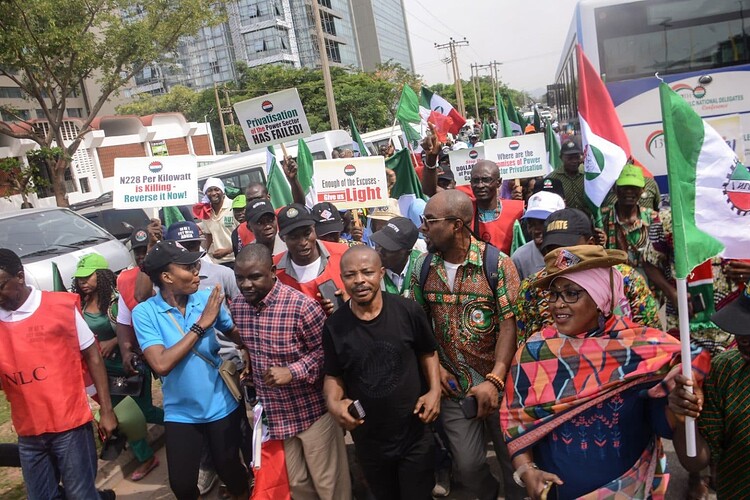A nationwide strike is set to commence on Monday, June 3rd, 2024, as the Nigeria Labour Congress (NLC) and Trade Union Congress (TUC) express their dissatisfaction with the tripartite committee’s failure to reach a consensus on a new minimum wage and an increase in electricity tariff.
In a joint news conference held in Abuja on Friday, the President of the TUC, Festus Osifo, announced the strike alongside the leadership of the NLC.
Labour leaders have announced their decision to take action after their request to the Federal Government to finalize negotiations for a new minimum wage by the end of May went unanswered.
“The Nigeria Labour Congress (NLC) and the Trade Union Congress (TUC) have announced the commencement of an indefinite nationwide strike against the Federal Government,” stated Osifo, expressing frustration over the ongoing inaction.
“We want to emphasize that due to the ongoing National Minimum Wage negotiation, the electricity tariff increase has not been reversed and the categorization of consumers into bands has continued as requested. As a result of these unresolved issues, Nigerian workers have decided to commence an indefinite nationwide industrial action starting on Monday, the 3rd of June, 2024, to emphasize our demands.”
In a surprising turn of events, organized labour withdrew from the negotiation and declined not one but two offers from the federal government. The most recent offer on the table was a substantial N60,000. There is a strong push for a minimum wage of N497,000.
Increase in Cost of Living
With the removal of fuel subsidies and the floating of the naira, the cost of living in Nigeria has skyrocketed, leading to increased demands for a new minimum wage.
Following recent developments, labour leaders have announced a series of measures aimed at mitigating the effects of the subsidy removal. These measures include the introduction of a new minimum wage and alternative transportation options.
To negotiate a new minimum wage, the government established a committee with representatives from the organized private sector, government officials, and labour leaders.
The committee held numerous meetings but was unable to reach a consensus, which sparked the most recent strike that the labour leaders called. Regarding the recent actions taken by the TUC and NLC, the Federal Government has not made any comments.
